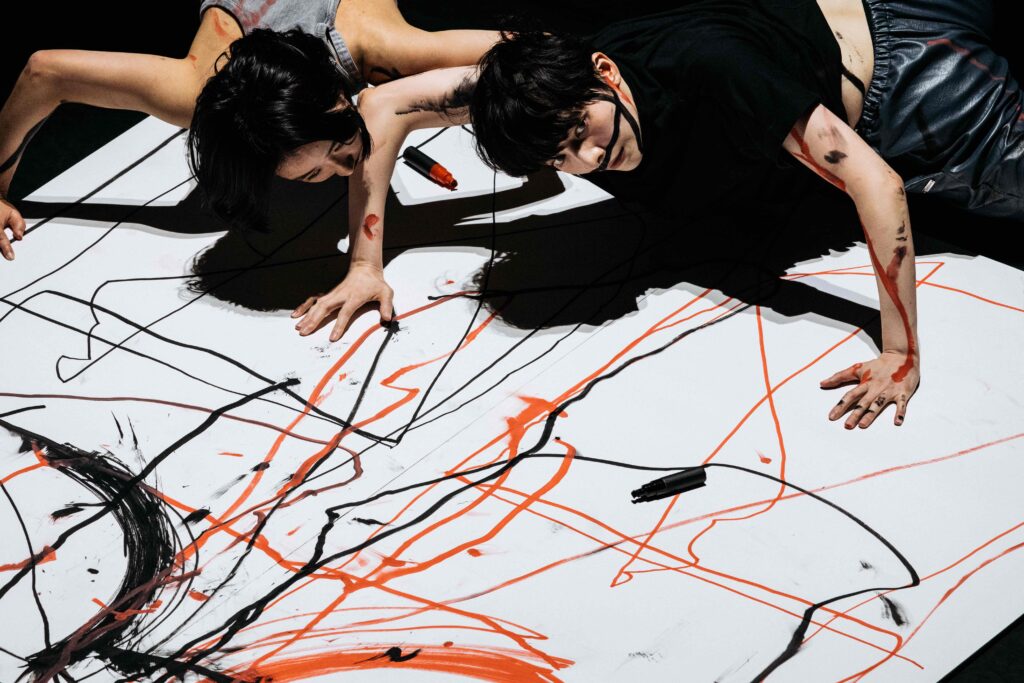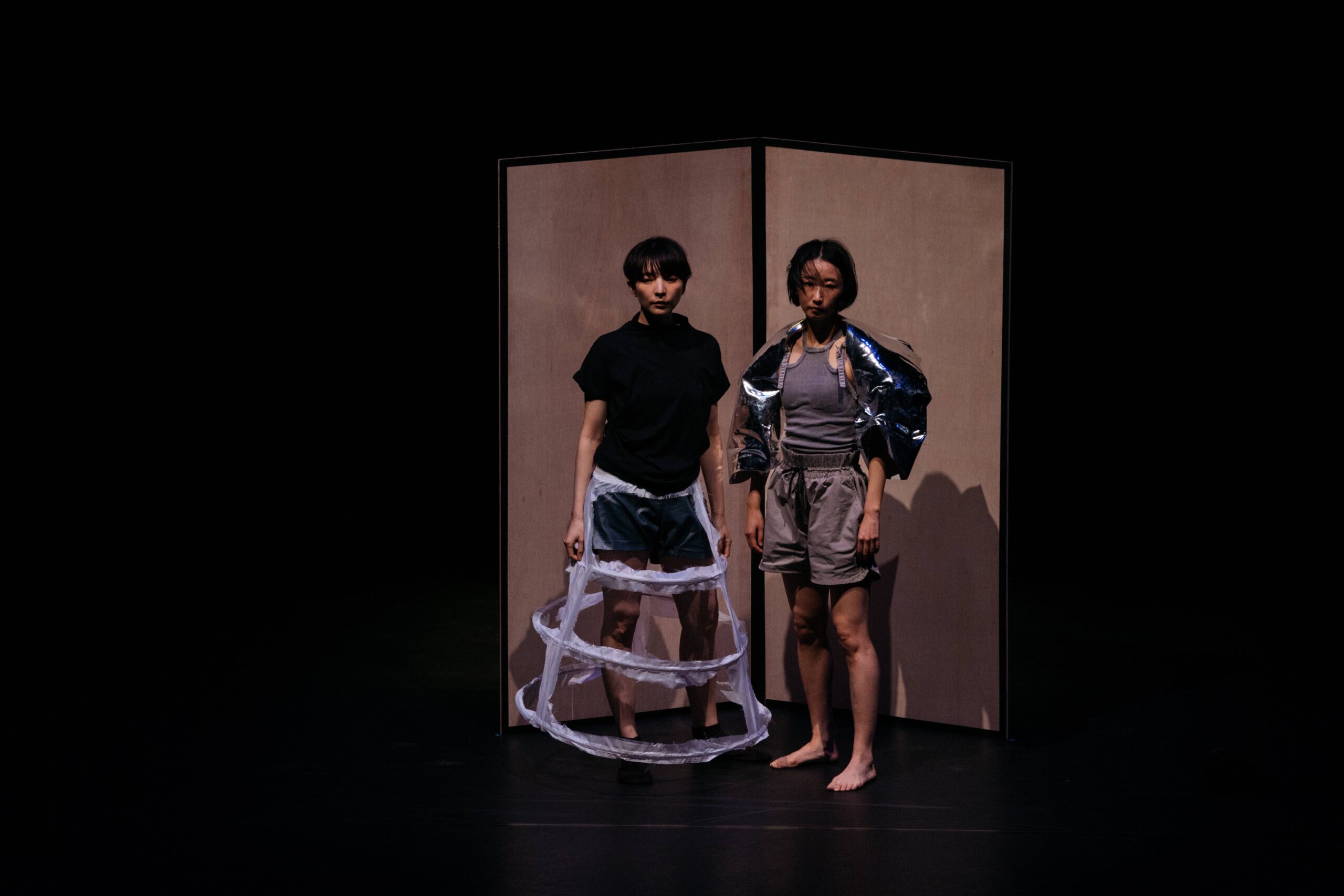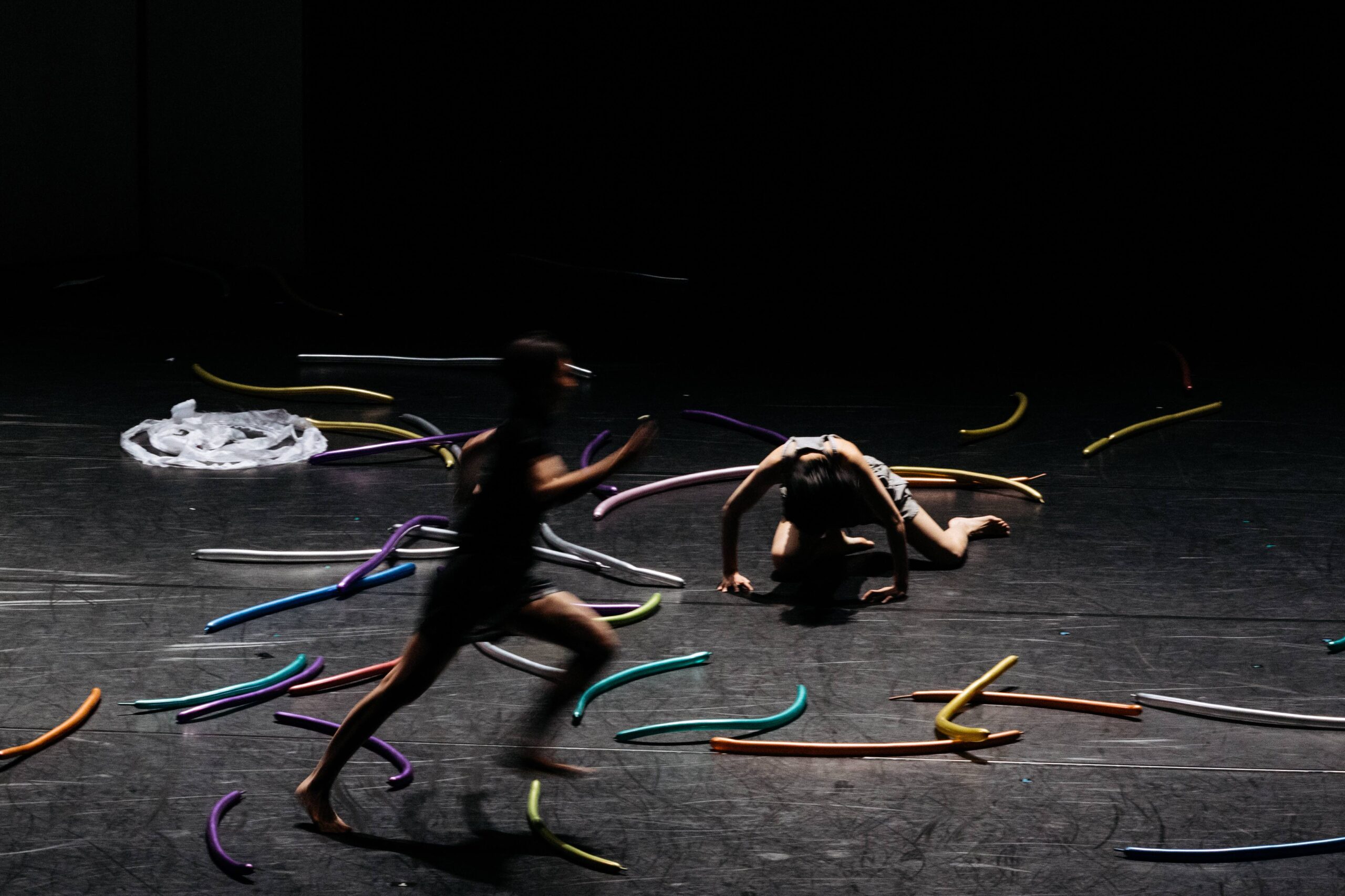Post Ghost

In Post Ghost, Saori Hala and Kaho Kogure go in search of transgressive bodies in today’s society, while looking at the representation of gender in kabuki theater.
The origins of kabuki are said to lie in the “kabuki dance” started by Izumo no Okuni, a shrine maiden who appeared in Kyoto in the early 17th century. She whipped up crowds who desired release from systems and authority with her provocative performances, which incorporated the anti-establishment customs of kabukimono (people who behaved unconventionally; the term derives from the verb kabuku (傾く), which meant “to lean/deviate”). However, it was later supplanted in popularity by “prostitute kabuki,” which had a strong association with sex work, and before long women’s participation in theater was banned on the grounds that it disturbed public morality. This fact has had a profound influence on the representation of gender in kabuki tales. Perhaps the oyama (the convention whereby male actors play female characters) seen in today’s kabuki reveal something of Okuni’s resistance and lingering resentment, while also keeping her mystique alive.
Interestingly, the ghosts of women often feature as vessels for women’s desires and feelings, starting with Oiwa in the popular play Yotsuya Kaidan. One could say that they are a paradoxical symbol of freedom, only able to actively express themselves once they have lost their physical body and been freed from the restrictions of this world. However, as electricity rapidly spread from the Meiji Era onward, “darkness” and “mystery” gradually disappeared from society, and new variations of this story gradually stopped being told.
Looking across today’s world, we see the word “freedom” shine brilliantly everywhere. And yet we cannot flee as-yet-unseen anxieties and oppressions. It is in deep darkness that light shines bright. How would Okuni have deviated(傾いた)when faced with this light and darkness?
Dance artists Kogure and Hala seek out transgressive bodies in today’s society, in sympathy with the transcendence that proudly independent female performers once earned, and with the ghosts who made themselves heard. And, while reinterpreting the multi-layered aesthetics of kabuki̶in terms of boundaries, gender, belief, life and death, and mystery̶they lean(傾き)perceptively into this age of intense light and dark, and throw themselves into it.
Saori Hala, Kaho Kogure
Composition/Direction/Choreography/Performance: Kaho Kogure, Saori Hala
Dramaturgy: Haruto Niwa (Dance Base Yokohama)
Music: Tomomi Oda
Costumes: Kyoko Fujitani
Videography: Takaki Sudo
Producer: Eri Karatsu (Aichi Prefectural Art Theater / Dance Base Yokohama)
Production Manager: Yoshinori Sekoguchi (Aichi Prefectural Art Theater)
Stage Manager: Daijiro Kawakami (Scale Laboratory)
Assistant Stage Manager: Aiko Oguro
Lighting Design: Akiyo Kushida
Sound Design: Raku Nakahara
Subtitle Translation: Alex Dudok de Wit (Art Translators Collective)
Premiere: November 2024 (Aichi Prefectural Art Theater) As part of “Time in Between”
Developed and Produced by Aichi Prefectural Art Theater, Dance Base Yokohama


◆PERFORMANCE
2024 Performing Arts Selection 2024
・ [December] KAAT Kanagawa Arts Theatre, Hall(Kanagawa)
・ [November] Aichi Prefectural Art Theater, Mini Theater(Aichi)*Premiere
◆INTERVIEW
Shihai Aichi Prefectural Art Theater×Dance Base Yokohama "Performing Arts Selection"|Kaho Kogure × Saori Hala Post Ghost Interview


